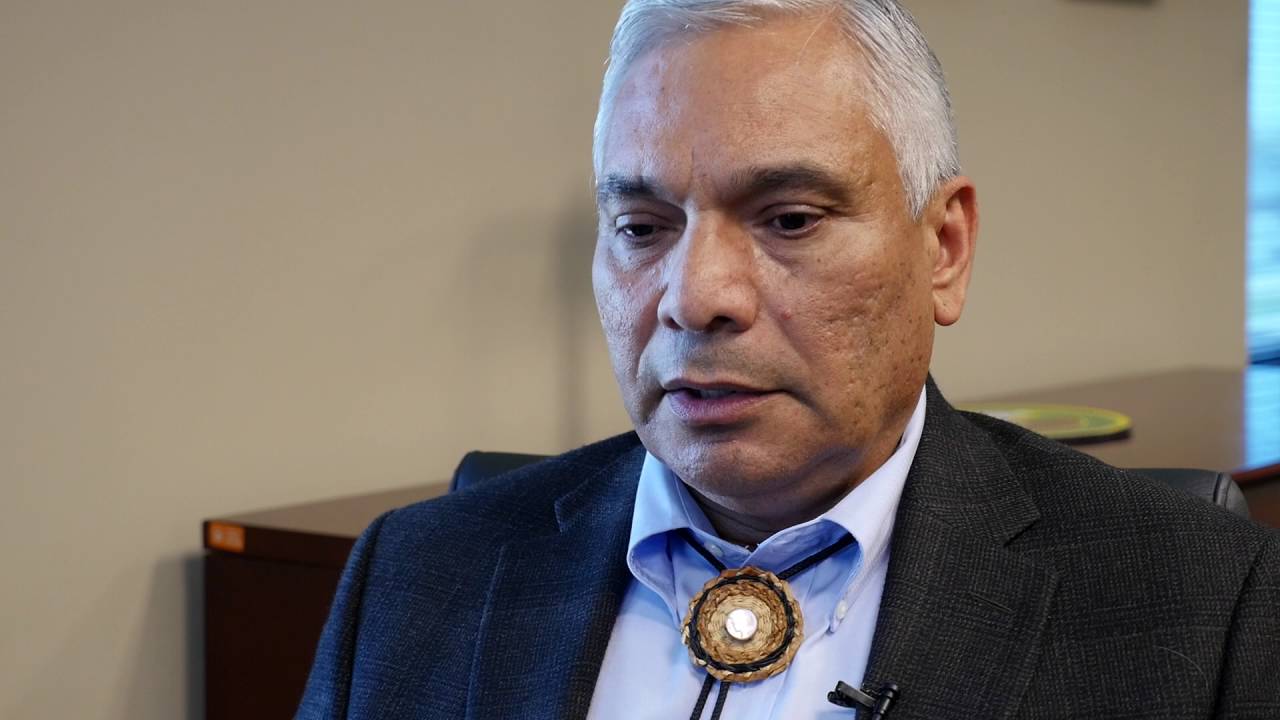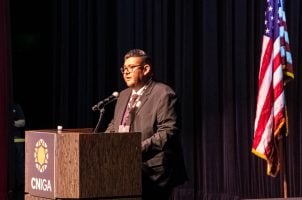Oklahoma Tribal Casinos Ignore Governor’s Legal Threat, Slots Keep Spinning into 2020
Posted on: January 2, 2020, 08:27h.
Last updated on: January 2, 2020, 09:42h.
It was business as usual for Oklahoma’s 100-plus tribal casinos as the clock struck midnight on New Year’s Eve. This was the moment the tribes’ 15-year compacts expired, after which Republican Gov. Kevin Stitt believes it is illegal for them to offer class III gaming.

Local media reported Stitt’s threat had no impact on operations on a night that was the busiest of the year for most casinos in the state. The Muscogee (Creek) Nation told Tulsa World its River Spirit Casino Resort in Tulsa was at full capacity and booked up weeks in advance.
“Today, on Jan. 1, we continue to honor our commitments to our employees, to our citizens, to our guests, and to the State of Oklahoma by ensuring our operations continue as usual and without disruption,” said Muscogee Principal Chief James Floyd.
Meanwhile, several other tribes issued official statements stressing that the slots would keep spinning throughout 2020.
Tribes Fight Back
Twenty-four hours earlier, three of the state’s biggest operators — the Cherokee, Chickasaw, and Choctaw nations — jointly sued Gov. Stitt. The lawsuit, filed Tuesday in Oklahoma City federal court, asks a federal judge to weigh in on the nature of their compacts.
The tribes believe the compacts auto-renew on expiration and claim this was the intention of the previous administration with which the agreements were negotiated.
Stitt disagrees. He wants to renegotiate the agreements to squeeze more money from the tribes in the form of revenue sharing payments.
The tribes pay four to six percent on slot revenue, depending on the size of the operation, and ten percent on table games – some $138.6 million last year.
Stitt said he wants 20 to 25 percent, which would be among the highest in the country and would put thousands of jobs at risk, according to the tribes.
Last month, Stitt offered the tribes an extension agreement, which would allow them to continue offering class III games with impunity for eight more months until the dispute is settled. Most rejected the offer because they believe their operations continue to be legal.
But last week, two of the state’s 38 federally recognized tribes — the Kialegee Tribal Town and United Keetoowah Band of Cherokee Indians — signed Stitt’s agreement.
The governor has suggested that if the tribes refuse to play ball, he would consider inviting commercial casino operators to Oklahoma, insisting they would “jump at the chance.”
‘Breaking Faith’
On December 23, Stitt’s secretary of Native American Affairs, former Republican State Rep. Lisa Billy, resigned, citing Stitt’s “unnecessary conflict” with the tribes.
You have dismissed advice and facts that show the peril of your chosen approach and have remained intent on breaking faith with the Tribes,” wrote Billy — a member of the Chickasaw Nation — in an open letter to Stitt.
“Your actions have shown that my continuing in service on your cabinet is unnecessary to you and impossible for me,” she added.
Stitt is himself a member of the Cherokee Nation.
Related News Articles
Most Popular
LOST VEGAS: The Foster Brooks Robot at MGM Grand
Bally’s Sets Date for Tropicana Las Vegas Implosion & Party
Most Commented
-
VEGAS MYTHS RE-BUSTED: You Don’t Have to Pay Resort Fees
— August 2, 2024 — 16 Comments -
VEGAS MYTHS RE-BUSTED: Elvis Was a Straight-Up Racist
— August 9, 2024 — 11 Comments -
ANTI-SOCIAL BEHAVIOR: Vegas Casino Buffet Stunt in Poor Taste Goes Viral
— August 16, 2024 — 7 Comments -
VEGAS MYTHS RE-BUSTED: The Strip Tried Appealing to Families and Failed
— August 23, 2024 — 7 Comments
















Last Comment ( 1 )
i was at river spirit casino on tuesday night 10/5/2020 and in the garage someone stole at the bike rack the stem and bar handles and bar grips that were securely attached on my bike they destroyed a woman's bike that is worth $379. it is only 5 months old this bike the glory of God is on this bike, to replace these bike parts cost around $100. or more. What the HELL is wrong with all of you? You should not have bikes in a garage in an unsafe area, bikes cost a lot of money and Oklahoma people are big car thieves and bike thieves. I don't care if they are homeless or not they have no right stealing expensive things like that, i did not want to park the bike in that area, i wanted to park it close to the door of the casino so it would be safe but NO ....... everyone works there who walks around doing absolutely nothing for work thinks this is a joke and told me that NEVER come back to the casino. GOD eventually will punish all of you for treating people like trash and garbage, All of you should be fired and the place should be closed down. It is a sin to gamble anyhow.